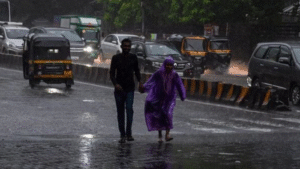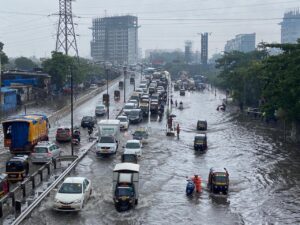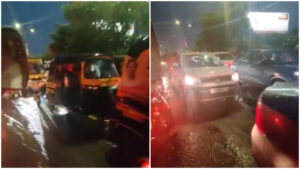No Parking, No Car: Maharashtra Enforces Strict Rule for New Vehicle Registrations

No Parking, No Car: Maharashtra Enforces Strict Rule for New Vehicle Registrations
Buying a new car in Maharashtra just got a lot tougher. The state government has introduced a new policy that mandates proof of parking space before registering a vehicle. This major decision, aimed at addressing the worsening parking chaos in cities like Mumbai, is likely to impact thousands of potential car owners across the state.
State Transport Minister Pratap Sarnaik made the announcement following a high-level meeting to review Maharashtra’s updated parking policy. Under the new regulation, car buyers must now present a valid parking allotment certificate issued by the respective municipal authority. Without this document, the Regional Transport Office (RTO) will not process new vehicle registrations.
“We are planning to create more dedicated parking zones. Development norms must be strictly followed, and real estate developers should ensure adequate parking is provided along with residential units,” said Sarnaik. “From now on, no new car will be registered unless the buyer can show official proof of allocated parking space from the municipal body.”
This move is primarily targeted at tackling the mounting parking and traffic issues in the Mumbai Metropolitan Region (MMR), where space is already at a premium. Authorities say that unregulated vehicle ownership has significantly worsened congestion, making such measures unavoidable.
Sarnaik also acknowledged the acute shortage of parking slots in the city. He revealed that the Urban Development Department is evaluating proposals to allow the construction of underground parking plazas beneath large entertainment complexes and public gathering spaces, which are often underutilized for parking needs.
In addition to the parking policy, the minister shared updates on the state’s futuristic transport ambitions. He discussed ongoing efforts to develop a pod taxi system in Maharashtra — a high-tech, small-scale transit model aimed at improving last-mile connectivity, particularly in densely populated urban corridors.
“A design for the pod taxi project has been submitted to me, and I recently visited Vadodara, which is on track to host the world’s first pod-car system,” Sarnaik said. He added that the Maharashtra government is planning to implement similar systems in areas like Mira-Bhayandar and Bandra-Kurla Complex (BKC) to strengthen metro connectivity and offer commuters an efficient alternative.
With housing and transportation becoming increasingly challenging in Mumbai, the state’s new car policy is a reflection of the broader push towards structured urban development. While it may slow down new car sales in the short term, officials believe it is a necessary step to ensure cities remain livable in the long run.












